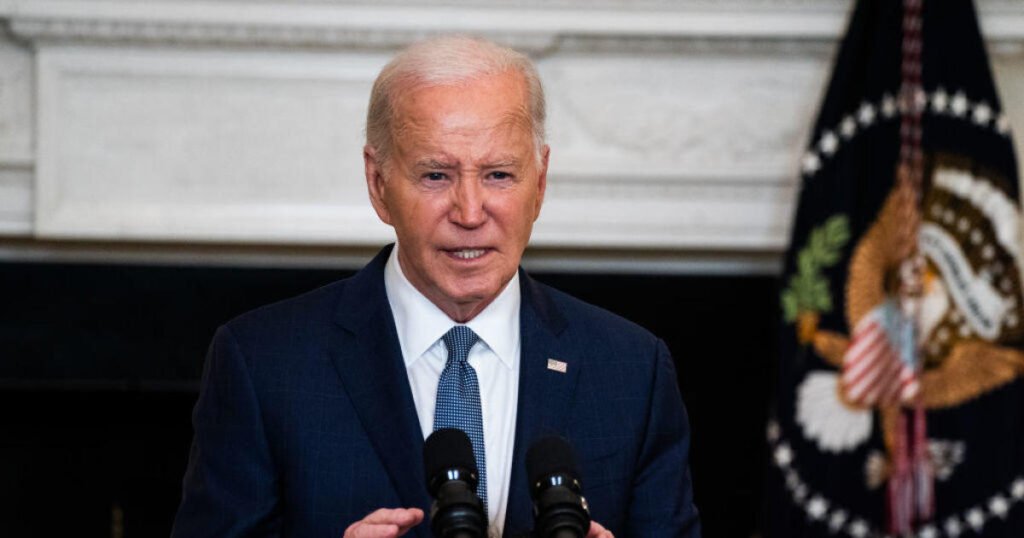President Biden is set to issue an executive order aimed at partially shutting down asylum processing along the U.S.-Mexico border, allowing immigration officials to quickly deport migrants who enter the U.S. illegally without processing their asylum claims. This move is expected to rely on presidential authority under 212(f) and would apply when border crossings exceed a certain threshold. Asylum processing at border ports of entry will continue under the order, where the Biden administration is currently processing about 1,500 migrants each day using a smartphone app system. Unaccompanied children are also expected to be exempt from the order.
Democratic lawmakers and border community mayors have been briefed on President Biden’s plans, with an announcement expected on Tuesday. The executive action is likely to face legal challenges, as have many of the administration’s immigration policies. Migrant apprehensions along the southern border have reached record levels in recent years, creating both a humanitarian crisis and a political challenge for the administration. Immigration has become a top concern among American voters, but illegal border crossings have seen a recent decrease, with Border Patrol recording a sharp decline in apprehensions over the past few months.
The decrease in migrant arrivals has been attributed to an aggressive crackdown by Mexican authorities on U.S.-bound migrants and increased deportations by the Biden administration. President Biden’s expected move comes just after Mexico’s presidential election and ahead of his first debate with former President Trump, the presumptive GOP nominee. The use of presidential authority to restrict asylum processing represents a significant policy shift that will likely have implications for the ongoing immigration debate in the U.S. As the administration continues to navigate the complex challenges at the border, the impact of this executive order on migrant rights and the immigration system as a whole remains to be seen.
As the Biden administration continues to grapple with border security and immigration policy, the anticipated executive order is poised to significantly impact the processing of asylum claims along the U.S.-Mexico border. The use of 212(f) authority to expedite deportations of migrants entering the U.S. illegally reflects the administration’s efforts to address the surge in illegal crossings and reduce strain on border resources. While asylum processing at official ports of entry will continue, the order is expected to face legal challenges and scrutiny from advocates for migrants and Republican-led states.
President Biden’s expected announcement comes amid a broader debate over immigration policy and border security, with recent data indicating a downturn in illegal border crossings. The administration’s efforts to address the humanitarian crisis at the border have been met with mixed reactions, and the use of executive authority to restrict asylum processing raises questions about the impact on migrant rights and due process. As the Biden administration navigates these challenges, its response to the ongoing immigration issues will continue to shape the policy landscape and influence public perceptions of border security and migrant rights.

